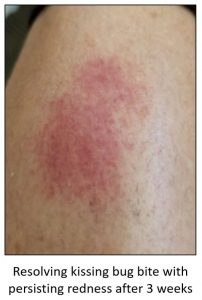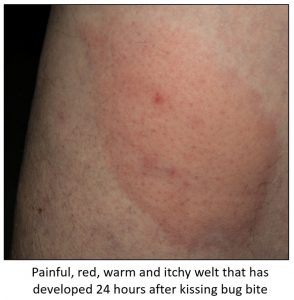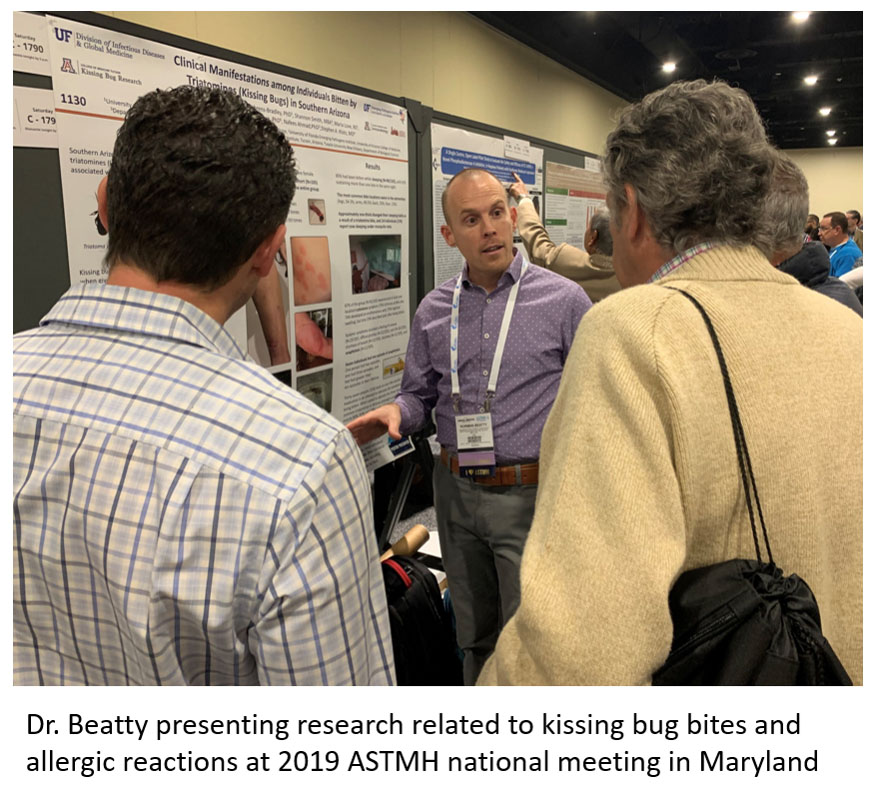Bite Allergy

 Kissing bug bites can be allergenic! The bite is often painless because the insect produces a local numbing agent while taking a blood meal.
Kissing bug bites can be allergenic! The bite is often painless because the insect produces a local numbing agent while taking a blood meal.
However, it is believed that the salivary proteins injected at the site are what trigger an allergic reaction. Most people who are bitten by a kissing bug will experience a red welt at the site that will be slightly warm, and eventually painful. It may also be itchy. The lesion can persist for weeks and may even look like a bruise as it resolves.
Unfortunately some people can even develop systemic symptoms such as diffuse rash (hives), fast heartbeat, feeling of anxiety, and even anaphylactic response after the bite. 
The worrisome symptoms are low blood pressure, headache, vision changes, trouble breathing, swelling of the lip and/or tongue, and passing out (syncope). These are signs/symptoms of anaphylaxis and anyone who develops these findings after a bite should call 911 for emergency medical attention.
People with anaphylaxis to kissing bug bites will typically sleep with an epinephrine pen (auto-injector) that could be administered in the chance that another bite was experienced.
 The interesting thing about this allergy is you can have an allergy to different the different species of kissing bugs, and some people who have been bitten by different species do not always have the same reactions.
The interesting thing about this allergy is you can have an allergy to different the different species of kissing bugs, and some people who have been bitten by different species do not always have the same reactions.
Among the kissing bugs in the North America, Triatoma protracta and Triatoma rubida are commonly known to cause allergic reactions, including anaphylaxis. More research is need to better understand what is causes these reactions!
If you have been bitten by a kissing bug and have experienced an allergic reaction you should consider seeing an allergy specialist to discuss the reaction.
If you are interested in learning more about kissing bug research please email: kissing-bug@ufl.edu


